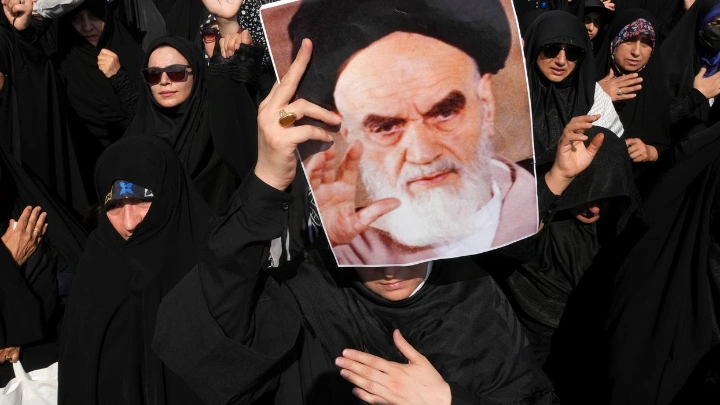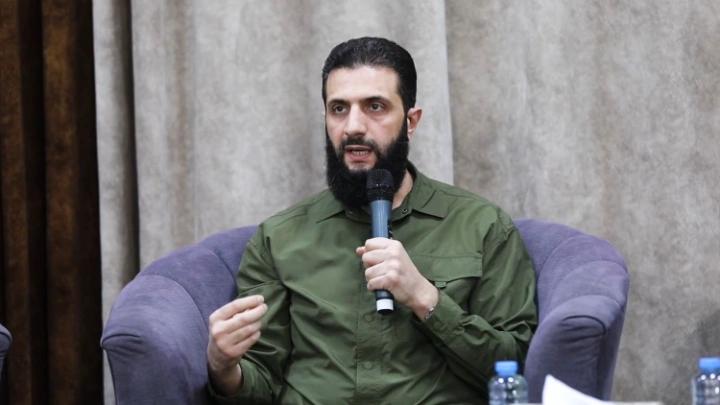Did Iran's 'morality police' really disband?
Shining BD Desk || Shining BD
There is uncertainty over reports suggesting the notorious vice squad has been shut down. In any case, authorities have other powerful means of monitoring behavior and issuing punishment.
On Saturday evening, Iranian Attorney General Mohammad Jafar Montazeri told a conference that Iran's "morality police" have "nothing to do with the justice department" and have been "shut down by those who created it."
His statements were reported by the state-run ISNA news agency, and unleashed discussion around the world that the Islamic Republic was responding to massive public pressure following months of anti-government protests sparked by the death of a young Kurdish woman, Jina Mahsa Amini.
The young woman died on September 16 after being detained by the "morality police" for allegedly wearing a hijab headscarf "improperly." Authorities have denied reports she was beaten and claim the 22-year-old died of a heart attack.
Statement 'taken out of context'
However, on Monday, state-run Iranian broadcaster Al-Alam reported Montazeri's statements had been taken out of context, and that Iran's justice department would "continue to monitor public behavior."
Iran "does not have a 'morality police,' rather a 'public security police' and the justice department has no plans to abolish it, nor will it take a step in this direction," local media reported Monday of what they say Montazeri as actually said.
Iranian women's rights activist Mahdieh Golroo told DW that Montazeri's statements represented a "tried and true" tactic of the Islamic Republic's information strategy.
"First, they claim something and engage media with it to raise hopes that this system is capable of learning and reform," the 36-year-old activist who lives in Sweden said.
She added that although the mobile units of the "morality police" could very well be changed from their current form, this doesn't necessitate a change in the strategy of using state power to enforce public behavior, like requiring women to wear headscarves.
Iran's network of 'morality spies'
And even if the "morality police" were ostensibly shut down, "another group could take over this task of controlling women in public."
For example, Iranian media have since reported tighter controls on strict dress codes, especially the hijab, being carried out by the organization, translated roughly from Farsi as the office for "Commanding Good and Forbidding Evil."
This organization operates in parallel to the "morality police." Founded in 1993, it is headed by a cleric in Tehran and relies on state financing to carry out its work.
Its cadres are mostly volunteers who supply information about alleged violations of "morality" rules to one of 500 offices across Iran.
 Many Iranian women are refusing to wear headscarves as an act of defiance Image: dpa
Many Iranian women are refusing to wear headscarves as an act of defiance Image: dpa
Stories of "morality" infractions find their way into pro-regime news agencies like Tasnim News, which ran a story recently about: "A ticket seller in a Tehran indoor playground not [wearing] a headscarf. As a result, the indoor playground was closed."
Stories like these are an example of the consequences faced by businesses and institutions if women working there do not wear a hijab as mandated by Islamic law.
One case reported last week in Qom Province south of Tehran involved a bank director, who was fired after serving a woman not wearing a headscarf. The transaction was recorded on closed-circuit video and circulated widely on social media before being reported to a "Commanding Good and Forbidding Evil" office.
The group's secretary, Mohammad Saleh Hashemi Golpayegani, believes the "morality police" and their mobile units, which can be photographed and filmed by citizens during the forcible detention of women, are counterproductive.
He had suggested in a statement following the death of Jina Mahsa Amini in custody, that instead of using vice squads to enforce "morality codes," the police should rely on voluntary support of the "reliable population."
Golpayegani adds all that will be needed is better funding for the "Commanding Good and Forbidding Evil" organization, claiming that 3 million citizens are willing to support his organization.
By Shabnam von Hein
Shining BD
























